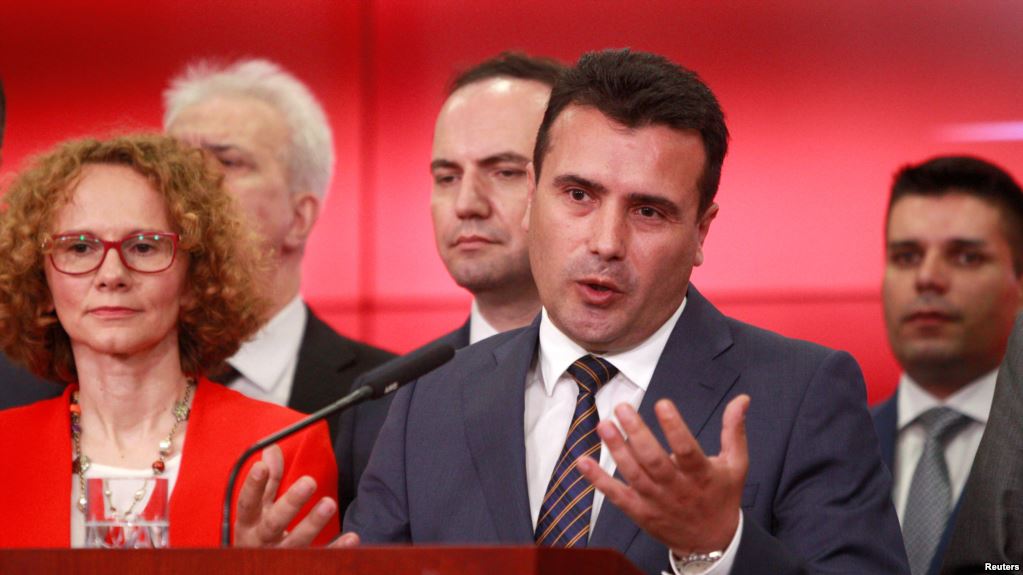TIRANA, June 13 – The 27-year-old name dispute between Greece and Macedonia was resolved on Tuesday, when both countries agreed that from now on Macedonia’s official name will be the Republic of Northern Macedonia.
The solution given to the name dispute, which had so far blocked Macedonia’s efforts to join NATO and begin EU negotiations, will now have to be approved by the country’s lawmakers and voters.
Greek Prime Minister Alexis Tsipras said he expects no trouble in having the proposed named approved in Greek parliament with a big majority, although the Nationalist Greeks party plans to reject it.
Meanwhile, Macedonian President Gjorge Ivanov said he will not sign off the new deal with Greece, because it gives the neighboring country too many concessions.
There has been citizen protests in both countries by those opposing the deal, however even President Ivanov cannot refuse signing the deal two times in a row, if approved by the Macedonian parliament.
Macedonia’s Prime Minister Zoran Zaev said there is “no going back” in a press conference on Tuesday, after a phone call with Greek counterpart Alexis Tsipras.
Earlier in the day it was also said the two governments have agreed to use the term “Macedonian citizens” and “macedonian language,” while in the passport it will be written “citizen of the Republic of Macedonia.”
Albania’s highest state and political authorities also congratulated on Tuesday evening the reached agreement between the two neighboring countries.
“Very happy for the historic agreement on Macedonia’s name! It comes at a long-awaited moment, as a clear Euro-Atlantic perspective for our region. I value the courage and responsibility of the political leadership of Greece and Macedonia that contributed to this important achievement,” Albanian President Ilir Meta wrote on his official Facebook page.
The US also congratulated the deal. Through a statement on Tuesday, the State Department stressed that solving the name dispute will benefit both countries, as well as regional security and development.
“The United States,” reads the statement, “are ready to back the deal, as requested by the two countries.”
The NATO Secretary General Jens Stoltenberg also said that “the historic agreement puts Skopje in the path to NATO membership and it will help consolidate peace and stability in the Western Balkans.”
Congratulating both countries’ prime ministers, European Council President Donald Tusk said “the impossible was made possible.”
Under the agreement, official Skopje also has to make changes to the country’s constitution by removing the reference “on the protection of Macedonian minorities outside the state’s borders.”










